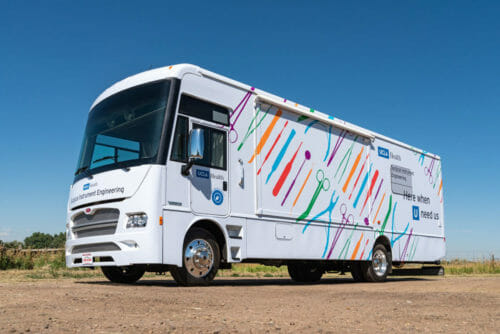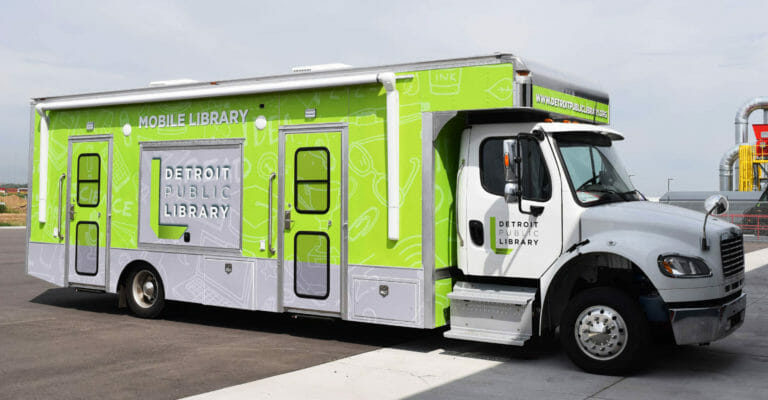Alternative Fuel
Four Considerations When Switching to an Alternative Fuel Vehicle
July 27, 2021

Alternative fuel vehicles are an increasingly popular choice for private businesses and government entities alike. These vehicles utilize electricity, natural gas, or a hybrid application to operate, cutting out the need for conventional fuel. Often, they are also designed to include additional power options for running equipment when a vehicle is parked, negating the need for gasoline or diesel generators.
If you are considering switching to an alternative fuel vehicle, check out the following four key considerations before making the change.
#1: The Upfront Cost
Any time that you upgrade a vehicle in your fleet, you will face an initial cost to do so. When upgrading to an alternative fuel vehicle, the upfront cost will be an important consideration.
However, as you look into the cost of an alternative fuel vehicle, make sure to think through all of the following factors:
- Do you already have a vehicle that needs to be transitioned out of your fleet? If so, this might make the cost of an alternative fuel vehicle a wisely-timed choice.
- Can you use government incentives to mitigate some of the upfront cost? In many cases, local, state, and federal incentives make it more affordable to switch to an alternative fuel vehicle than you might think. Use the U.S. Department of Energy’s online search tool to discover what incentives exist in your area.
- What money will you save on operational costs over time? Take the time to dig into your fleet’s current operational costs. If you were to switch to an all electric vehicle or a hybrid, calculate the money your business will save. Then, compare this to the upfront cost of making the switch. In many cases, the overall lowered operational costs will pay back the vehicle in little to no time at all.
- What financing options are available? In many cases, the customization team you work with can help you secure financing for the vehicle. This can help reduce the amount of upfront capital you need to make the switch.
#2: The Long Term Benefits
As you weigh the pros and cons of switching to an alternative fuel vehicle, make sure to factor in the long-term benefits your business will reap. These include all of the following:
- Lowered operational costs: Less fuel consumed means a lowered cost of operation. This can be particularly beneficial for businesses that rely heavily on their mobile units for operation. You can even use the U.S. Department of Energy’s Vehicle and Infrastructure Cash-Flow Evaluation model to calculate the potential long-term savings.
- Federal, state, and local incentives: Many incentives equate to cash back. Be sure to factor in the incentives your business will receive for making the switch.
- Positive press: Operating alternative fuel vehicles is a great way to demonstrate to your customer base that you are committed to caring for the environment. Use the switch as a chance to promote your brand as an eco-friendly choice.
#3: The Environmental Factor
One of the most obvious benefits of an alternative fuel vehicle is the positive impact it has on the environment. Many of these vehicles are designed to be zero-emission units, which means less pollution in the air.
Over time, pressure is increasing in both public and private sectors to make a significant change in how we treat the planet. Switching to an alternative fuel vehicle can allow you to get ahead of the trend. In fact, many local governments are committing to 100 percent renewable energy use in the next 20 years, making it imperative for companies to start making these changes sooner rather than later.
#4: The Customization Options
One of the best parts about upgrading a vehicle in your fleet to an alternative fuel vehicle is your chance to customize the build.
A new alternative fuel vehicle can be designed to your exact specifications. From the layout to the equipment included, you can create a vehicle that makes the job of your team easier.
Numerous styles of custom builds can be designed on alternative fuel vehicles, including mobile medical units, such as bloodmobiles, imaging labs, and primary care units, as well as other outreach style vehicles, such as bookmobiles and learning centers.
The key to getting the most out of your switch to an alternative fuel vehicle is to work with a customization team that can design the vehicle to match your needs. Work with a team that has in-house designers and engineers to ensure that the vehicle you drive away with is perfect for your business.
Talk to Summit Bodyworks About a Custom Alternative Fuel Vehicle
If you are interested in making the switch to an alternative fuel vehicle, talk to our team at Summit Bodyworks. We have years of experience designing and building custom upfits of all kinds.
Interested in seeing our work in action? Check out our custom-built mobile medical unit for the UCLA Health Center. This zero-emission unit was designed on an all-electric Winnebago shell. From here, we worked with UCLA Health to design the ideal vehicle to meet their team’s needs. They now use this all-electric vehicle to travel between their campuses to collect, repair, and sterilize surgical suite instruments.
In fact, this vehicle’s battery is capable of holding enough charge for about eight hours of operation plus travel to and from its home base. The range of miles delivered on a full charge is up to 125.
No matter what your custom vehicle needs, we have you covered. Reach out today to learn more about designing a custom alternative fuel vehicle.


